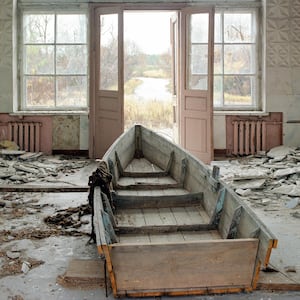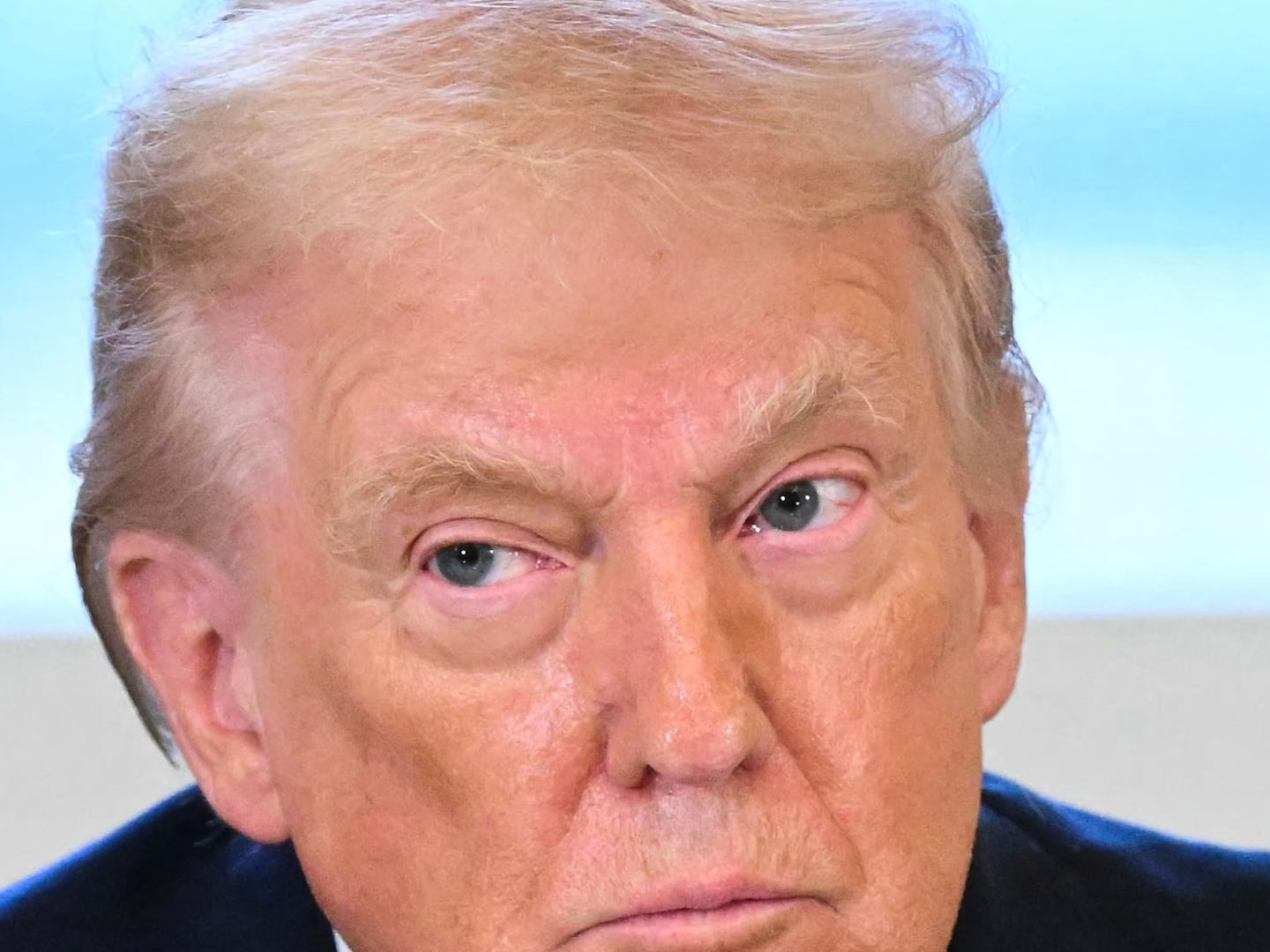The Chernobyl nuclear disaster was the screw-up to end all screw-ups, playing a part in more than 93,000 deaths and turning the northern Ukrainian region uninhabitable. Yet as HBO’s Chernobyl reveals, even more deadly than the radiation released by the accident were the lies that caused it in the first place—and, afterwards, stymied efforts to contain and combat it.
Director Johan Renck and writer Craig Mazin’s five-part miniseries—a coproduction with Sky, debuting on May 6—is a dramatized look at the catastrophe and its equally harrowing fallout. “What is the cost of lies?” intones nuclear physicist Valery Legasov (Jared Harris) in a 1988-set introduction. “If we hear enough lies, then we can no longer recognize the truth at all. What can we do then?” It’s a question he’ll answer at story’s conclusion, but not now, because after completing his confessional audio recordings in his drab kitchen and hiding his collection of tape cassettes in a nearby alley, Legasov returns home, feeds his cat, enjoys a few last puffs of his cigarette, and hangs himself.
No matter that a KGB chief climactically argues that this tale has no villains, there’s plenty of blame to go around, and following its prologue, Chernobyl—whose raft of British-accented Russians take a bit of getting used to—cuts straight to April 26, 1986, and the cataclysm itself. In the control room of nuclear reactor number four, Anatoly Dyatlov (Paul Ritter) roundly criticizes underlings as morons while wholly refusing to believe that anything serious has occurred. Rather than grapple with the facts at hand, he assumes the facility’s alarms and alarming console readouts are signs of a minor issue—and certainly nothing as grave as a nuclear core explosion, which he, and many men and women who subsequently appear, deems impossible.
There was no apparent reason for the core’s detonation, especially since those at the reactor’s helm hit the manual shut-down button. Still, Dyatlov’s unwillingness to see things as they are turns out to be a mistake with horrifying consequences. Men are sent into radioactive areas to investigate and handle the situation, returning with corrosive burns—if they return at all. Firefighters, including Vasily (Adam Nagaitis), who bids farewell to wife Lyudmilla (Jessie Buckley) in the wee hours of the morning, are sent to the scene to quell the raging fire, where they come into contact with toxic elements. And locals in nearby Pripyat gather on a railway bridge to watch the column of light shooting upwards from the site, as flakes of radioactive debris fall around them like snow. That overpass would, in later years, come to be known as “The Bridge of Death,” because all who visited it during that fateful period would perish.
As Chernobyl recounts, Anatoly wasn’t the only one who turned a willfully blind eye to reality. Chernobyl bigwigs gather in a bunker to comfort themselves with Anatoly’s heartening reports, clinging to this misinformation rather than reacting accordingly. In that conference, an elder statesman goes so far as to proudly, and excitedly, proclaim: “We will all be rewarded for what we do here tonight. This is our moment to shine.” There’s a chilling pun buried in that comment, which is quickly proven to be literally false thanks to the outspoken analysis of Legasov (Harris), a dismayed professor who’s summoned by lifelong Party member Boris Shcherbina (a white-haired Stellan Skarsgård) to a committee meeting headed by Mikhail Gorbachev (David Dencik).
Legasov and Shcherbina’s rapport forms the crux of Chernobyl’s early installments, as the former delivers warnings that Shcherbina—like his all-news-must-be-good-news Party brethren—is averse to hear. That changes once both visit Chernobyl itself, where the building rooftops are littered with lethal graphite (which could have only come from the core), radiation levels are shockingly high, and men are emerging from the wreckage resembling charred corpses. Chernobyl infuses this material with funereal terror, drenching its drama in blacks and grays, and employing slow-motion images of soil, water and air to suggest that nature itself has been poisoned (much of it set to ominous repetitive tones). The show casts the incident as akin to the apocalypse, and those populating the immediate and surrounding areas—whether exhibiting radiation-sickness symptoms or not—as the walking dead.
Harris’s rational scientist and Skarsgard’s rigid Soviet official prove to be initially dissimilar, but Chernobyl superbly elucidates their dawning understanding that some actualities—including their own cancer-riddled future—are indisputable, and thus must be faced. The esteemed actors bring nuanced, complicated baggage to their protagonists, who are navigating a bureaucracy uninterested in failure, and so too does Emily Watson as Ulana Khomyuk, a nuclear authority (and composite character) who aids Harris in his quest to contain the Chernobyl tragedy as well as deduce its underlying cause. Together, the show’s headliners lend the action gravity and humanity, and they’re aided in their work by Jessie Buckley as Vasily’s distraught spouse, and Barry Keoghan as one of the 600,000 conscripts sent to clean up the Chernobyl “Exclusion Zone,” which in his case involves murderous animal-control duty.

Stellan Skarsgard and Jared Harris star in 'Chernobyl'
HBOChernobyl often plays as a real-time nightmare, detailing the logistics of the meltdown—including the deployment of miners (who toil in the nude, due to the heat) to bolster the plant’s concrete foundation. At the same time, via Legasov’s explanations to Shcherbina, it delivers a lucid primer on nuclear fission and reactor operation. That balance remains assured throughout, although its focus soon becomes not just the specific measures devised to prevent further mind-boggling ruin (at one point, Gorbachev is informed that Ukraine and Belarus, home to 60 million, is in danger of becoming a century-long hot zone), but the arduous struggle to ensure that the underlying failures responsible for this event are acknowledged and fixed.
By its finale, Chernobyl has transformed from a story about plant-operator faults to one about systematic deception on the part of the stubborn, arrogant, blind and foolish Soviets, whose communist culture—demanding absolute loyalty to the Party, which is always perfect and infallible, even when facts say otherwise—compelled everyone to cover up the truth lest they be vilified as nation-besmirching traitors. It’s that environment which Renck and Mazin’s haunting miniseries damns as the ultimate culprit for Chernobyl, which averted a worse tragedy only thanks to a precious few, like Legasov and Shcherbina, who embraced the truth—no matter how ugly—and then heroically sacrificed themselves for the greater good.







